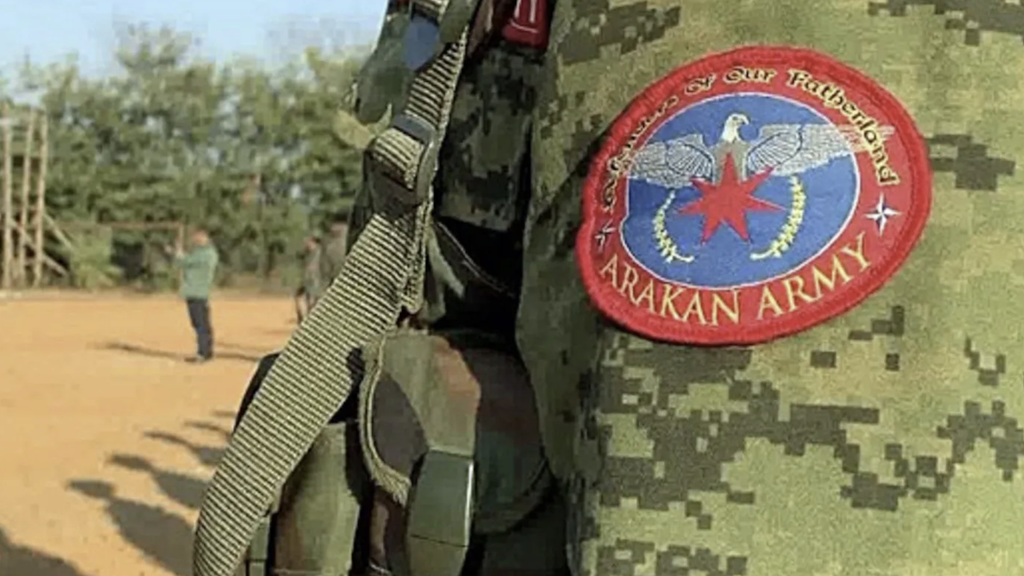Rohingya face ‘revived extortion’ in Myanmar
- 31/07/2018
- 0
By The Stateless Rohingya
Extortions on open-roads, at check-points and bridge-crossings and inside Rohingya villages become a new norm for Myanmar armed forces in Northern Rakhine State of Myanmar
RAKHINE: The practice of extortion against Rohingya is not uncommon. Myanmar Border Guard Police (BGP) in the bordering townships Maungdaw and Buthidaung, General Police and Riot Police in the downtown and the military stationed deep inside villages have ramped up the practice which Rohingya villagers believe to make their lives unbearable and force to leave the country.
More than 710,000 Rohingya from the northern region were forced to flee to Bangladesh after the well-orchestrated campaign of genocide was launched on August 25, 2017. The campaign which bears “the hallmarks of genocide” has cost over 12,000 Rohingya lives including children and women, burnt down at least 370 villages, committed rape against hundreds of Rohingya women under the hands of armed forces.
Rohingya civilians who remain in dispersed, isolated and lockdown villages in Maungdaw and Buthidaung, face the revived extortions in every walk of their already-miserable lives.
“When we find difficult to make ends meet after putting restrictions in place following the massive military operations against our people, those of us who did not leave to Bangladesh are facing a new form of persecution,” said a Rohingya community elder under anonymity.
False cases
Four Rohingya were arrested and extorted 1,200,000 Myanmar Kyat in Dar Bin Sara village tract 4, Buthidaung by BGP from Pyaung Daw Pyin on July 28. On the following day, the BGP officers also extorted 200,000 Kyat from Mr. Isha Dullah in Mee Cyaung Zay.
The community elder continued, “Whether we have money or not to feed our family the next meal, many Rohingya are being extorted by Myanmar police forces falsely associating the villagers with ARSA (Arakan Rohingya Salvation Army).”
Ibrahim, son of Mohammed Salam from Mee Cyaung Zay was imprisoned for 4 years in Sittwe Central Jail on a false case. His house was burnt down and his entire family was forced to flee to Bangladesh in the height of genocidal campaign.
Ibrahim was asked to pay 200,000 Kyat for his bail. However, he has no money and no one to pay, nor he has a house to live. He is now permanently confined behind the wall of the prison for crimes he has never committed.
Mohammed Zubair, Mohammed Rashid, Sayed Alom’s brother and Hafez Ahmed’s son were filed with false cases by the police in Buthidaung and subsequently extorted 300,000 Kyat and 200,000 respectively.
Roads and bridges
Extortion is widely practised on roads, check-points and bridge-crossings.
After opening of a new bridge in Buthidaung, Myanmar Police officials have been forcing Rohingya travellers to pay between 20,000 and 30,000 Kyat per person since July 8. Rohingya who cannot able to afford the money, are either prevented crossing or face false cases of being associated with ARSA.
Rohingya CNC car drivers are forced to pay 200,000 Kyat by BGP and Myanmar Traffic Police from Pyaw Nyin Law, Buthidaung township.
Another village said, “Even it is difficult to travel between nearby villages and many are afraid of travelling to buy goods due to the ongoing extortion of money by BGP.”
Healthcare related
Many Rohingya reportedly claimed that they were forced to pay hundreds thousands of Kyats in order to get travel permits to see doctors or healthcare officers in nearby villages in norther Rakhine.
Healthcare is scarce in the region as the result of expulsion of international humanitarian aid agencies which were the sole providers of healthcare to the impoverished Rohingya community.
On July 10, 12-month-old daughter of Enous died in Inn Chaung due to the lack of healthcare and money to apply for the travel permit to seek a treatment.
Around 63 Rohingya in Mee Cyaung Zay village are left without medical treatments for malaria and Hepatitis. Relatives of the patients claim that they cannot afford the treatments in other villages as treatments, travel expenses and permits are extremely high.
NVC cards
NVC (National Verification Cards) is also used to squeeze money out of rich and poor Rohingya in downtown areas. According to locals, Rohingya rickshaw pullers are even stopped and put pressure to accept the cards with highly-capped money which many people said a new form of extortion.
The card is used to verify Rohingya as foreigners although the community was once a recognised ethnic group of Myanmar and held the citizenship. It enforces to deny the right to self-identity as Rohingya.
Although the remaining Rohingya in the region have survived the mass atrocities at the hands of armed forces, they face another form of persecution which removes the dignity, exposes to corrupted and notorious officials and leaves their families starved, imprisoned and unattended to healthcare.
The officers who exercise the extortion are provided impunity and even encouraged to continue making life of Rohingya unbearable.







